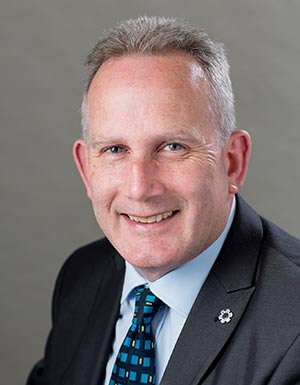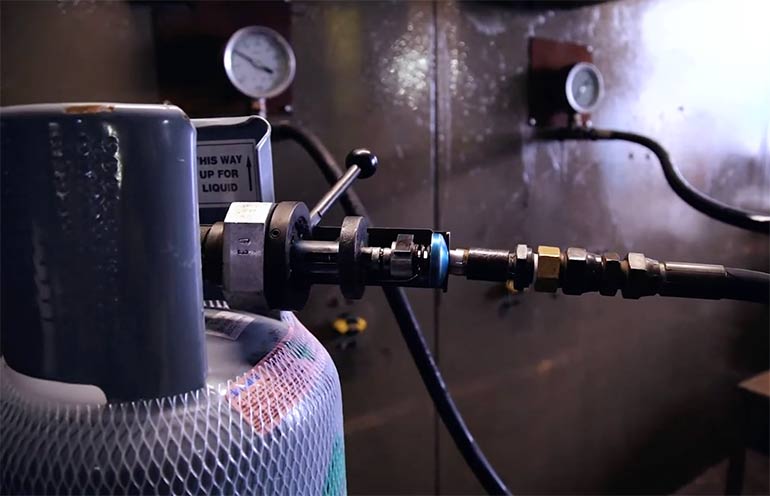The importance of recovery and reclamation
21st October 2020

A further cut of 29% in the availability of HFC refrigerants in Europe next year will accentuate the importance of recovery and reclamation, says Climalife UK’s head of sales Dave Richards.
The F-Gas Legislation states that all HFC refrigerants from refrigeration and air conditioning systems must be recovered and any reclaimed and recycled refrigerants with a GWP >2500 can continue to be used for a further 10 years after the service ban on virgin product use came into effect on January 1, 2020.
Recovered and reclaimed refrigerant will play a key part in helping the industry to meet the phase downs from the F-gas legislation. Reclaimed HFC’s are “quota free” so will be crucial in ensuring there is enough product available on the market to satisfy demand as the phase down in quota impacts availability.
Reclaimed or recycled product can still be used for servicing, but the availability of these high GWP refrigerants is completely dependent on systems being converted or replaced and demand for reclaimed product not exceeding the amount that comes back for re-processing over the next few years.
Refrigerants with a GWP over 2500 include R404A, R507A, R422A, R422D, R428A and R434A. Whilst it is expected that reclaimed R404A may remain available for some time, some of the other refrigerants may not be as easy to obtain from all suppliers.
By using reclaimed refrigerant, it is a way of decreasing the carbon footprint because it is reducing the production and supply of virgin refrigerants.
Even though reclaimed refrigerant can be an ideal short-term solution for systems still running on >2500 GWP refrigerants, there are other long-term considerations that need to be made. Using a reclaimed refrigerant may allow time for a decision to be made or capex to be allocated on a retrofit refrigerant or a new installation with a lower GWP refrigerant.
Recycle or reclaim?
Reclaimed refrigerant is often mistakenly called recycled refrigerant. They sound similar, but in reality, they are vastly different. A correctly reclaimed refrigerant which is normally reprocessed by your supplier of refrigerants, will have the same specification as virgin refrigerant.

As recycling only puts the recovered refrigerant through a basic cleaning process, it usually means there is no analysis or quality assurance attached to the product in terms of specification or purity. If all of the contaminants are not fully removed through the recycling process, then the recycled refrigerant may cause harm if introduced to other systems. If a mixture is returned to a system along with any un-removed contaminants, eg oil or moisture, it may not perform in the same way as the virgin or reclaimed product and could cause system operation issues and impact system efficiency.
Refrigerant reclamation is a more intense and thorough process that includes analysing the specific contaminants, which can each then be filtered and removed meaning impurities are taken from the refrigerant and it is returned as close to its virgin form as possible.
For best quality, system operation and general peace of mind it is recommended recovered product is bought back to ARI specification by a professional reclamation process.
The recovery process
Recovering refrigerant can be a lengthy procedure and there are various methods that can be utilised to improve the speed of recovery, including the push-pull method where the recovery unit “pulls” vapour from the recovery cylinder and produces high-pressure discharge gas that “pushes” liquid out of the system and back into the recovery cylinder. There are also specialist recovery units which can recover refrigerants quickly from systems with bigger volumes, particularly where the time to recover the refrigerant may be critical and installation shut down time-limited.
At Climalife UK, the recovered refrigerant is returned to the filling plant in Swansea. Typically, all recovered refrigerant that is returned can be out of specification for moisture content, acidity and high boiling residue such as particulates.
After initial analysis to confirm product identity it is re-processed by a combination of distillation, cleaning and drying processes back to AHRI 700 specification which has the same conformity as virgin product. This enables the reclaimed refrigerant to be placed on the market as regenerated product and it will perform in the same way as virgin product would.
The F-gas legislation requires that all cylinders containing reclaimed or recycled product must be labelled as such, have a batch number and identify where it was re-processed to facilitate traceability. All F-gas records that are kept by a user also need to record that reclaimed product was used and where it came from.
Reclaim and retrofitting
Many Climalife UK customers have found that an easy way of creating reclaimed product is to convert existing systems to an alternative lower GWP refrigerant for example R448A and R449A; these being the most popular conversion refrigerants which have proven to be easy to use for those familiar with conversion procedures.
The recovered product is then returned to the Climalife facility for reprocessing for re-use as reclaimed product in other systems that may be less practical to convert.







